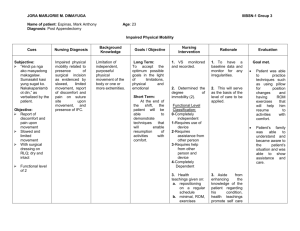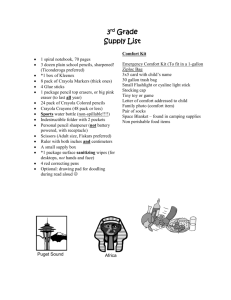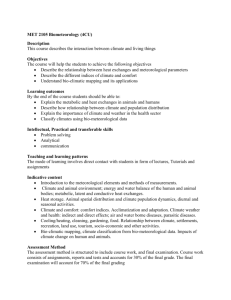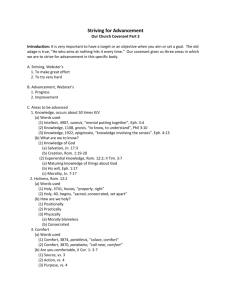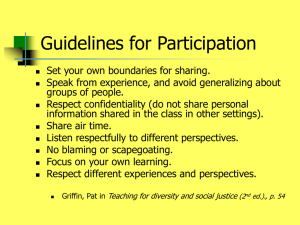Comfort Zone Lesson Plan: Thorpe Woodlands
advertisement
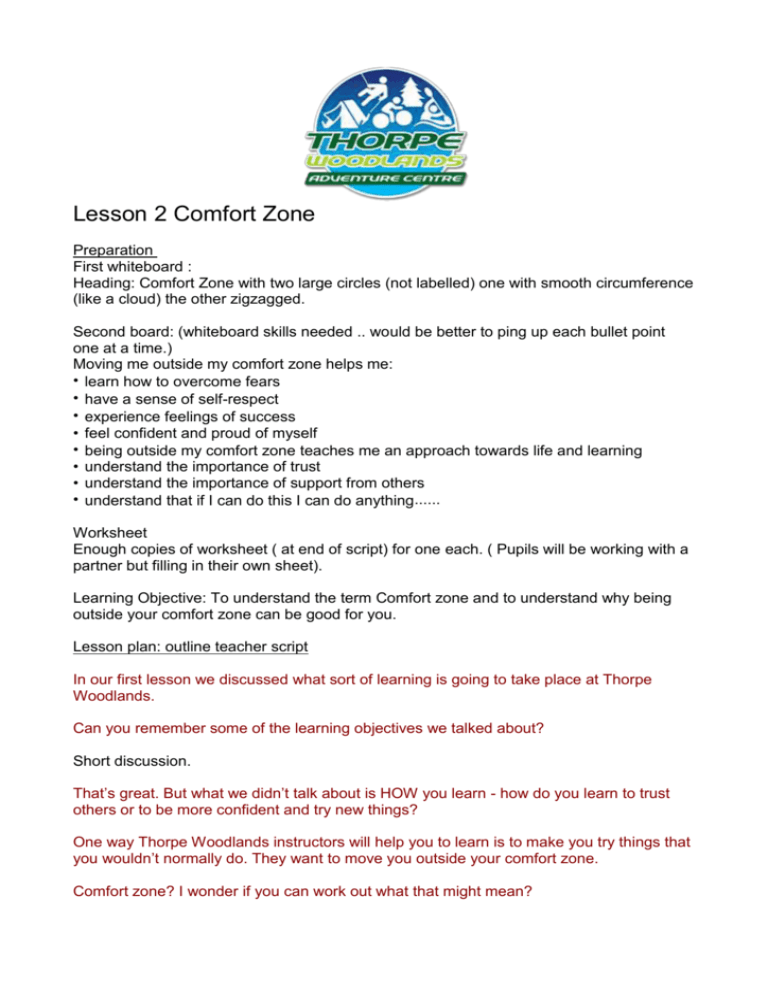
Lesson 2 Comfort Zone Preparation First whiteboard : Heading: Comfort Zone with two large circles (not labelled) one with smooth circumference (like a cloud) the other zigzagged. Second board: (whiteboard skills needed .. would be better to ping up each bullet point one at a time.) Moving me outside my comfort zone helps me: • learn how to overcome fears • have a sense of self-respect • experience feelings of success • feel confident and proud of myself • being outside my comfort zone teaches me an approach towards life and learning • understand the importance of trust • understand the importance of support from others • understand that if I can do this I can do anything...... Worksheet Enough copies of worksheet ( at end of script) for one each. ( Pupils will be working with a partner but filling in their own sheet). Learning Objective: To understand the term Comfort zone and to understand why being outside your comfort zone can be good for you. Lesson plan: outline teacher script In our first lesson we discussed what sort of learning is going to take place at Thorpe Woodlands. Can you remember some of the learning objectives we talked about? Short discussion. That’s great. But what we didn’t talk about is HOW you learn - how do you learn to trust others or to be more confident and try new things? One way Thorpe Woodlands instructors will help you to learn is to make you try things that you wouldn’t normally do. They want to move you outside your comfort zone. Comfort zone? I wonder if you can work out what that might mean? Class discussion - feeling safe, everything and everyone known, not being asked to do anything new and unknown or difficult. Let’s call this circle Inside your comfort zone. Imagine you are inside your comfort zone. Can we think of the sorts of feelings that might have being inside your comfort zone? Class discussion Feelings might include: • • • • • • • • happy safe content carefree at ease relaxed not worried confident Add to cloud circle. But what if you are moved outside your comfort zone? You won’t be surprised about the label for the zigzag circle: Outside your comfort zone. At times the instructors are going to ask you to do activities that will probably move you outside your comfort zone. Let’s think about that in two ways. Firstly, what kind of feelings that experience might lead you to feel and secondly, why would the instructors do that? Let’s answer the first question: what kind of feelings might you experience if moved outside your comfort zone or what sort of feelings do you think other people might have if they were moved outside their comfort zone? Think about the opposite of those feelings in the cloud circle? What could we put in here? Class discussion Suggestions • worried • anxious • nervous • uneasy • unconfident • hesitant • bit frightened Now that second big question: why would Thorpe Woodlands instructors whose job it is to look after you, want to move you outside your comfort zone? Why do they think it is a good idea to push you in this way? To make you feel a little hesitant or nervous or anxious? Not all the time, obviously, but sometimes. Let’s consider the sort of things you might do and the kind of feelings that people might have. Look at your worksheet. (Work with the class to show them what to do on the first box) Look at the first box called The Team Challenges. These are a group of different activities where you will be asked to work as a team to solve a problem. It might be for example, getting everyone in your group over some kind of obstacle - like a high wall. Why might this activity be a challenge? I can think of one challenge to overcome. Someone might be frightened of of the height of the wall. Let’s write that down. Do you get the idea - identify a challenge and the kind of fear it might create. Can we think of another two challenges this activity might create and the kinds of feelings those challenges might make someone have? Suggestions if needed ( can be written up on blank board - depends on level of class) • you might worry about being left behind. • you might be worried about being dropped • you might get frustrated because no one listens to your ideas • you might be anxious you are not strong enough to do the activity Good. Now, you might be really excited at the thought of such team games and already know that you will have fun here and perhaps this activity won’t be a challenge for you. As I said, the instructors don’t want to challenge you ALL the time - but just about everyone will face something that is a challenge for them at some point. Now your next challenge is to work together. Work on one box at a time. Try to think of three challenges for each activity that might make someone have some of those feelings we identified on the board and move outside their comfort zone.You have five minutes. Call attention of class Let’s see what challenges you have identified. What might prove to be a challenge for someone in the box Dinner Time and how might they feel? (Aim to identify and discuss about three points for each box - avoid overkill. Pupils can tick off as they go if they have identified the same challenges and feelings) So we know we may be asked to move outside our comfort zone at times and we know what that means - we know it may make us have difficult feelings. We also know that the learning at Thorpe is different - not the kind of learning that takes place in a classroom. Let’s just look at the kind of learning moving us outside our comfort zone can lead to. Board 2 (Ping up each one and briefly discuss) Moving me outside my comfort zone helps me: • learn how to overcome fears • have a sense of self-respect • experience feelings of success • feel confident and proud of myself • • • • see how I can approach life and learning more positively understand the importance of trust understand the importance of support from others understand that if I can do this I can do anything...... Well done. We have come to the end of this session on why we are going to Thorpe Woodlands. I hope you understand the term comfort zone and why being made to go outside your comfort zone can be so good for you as a person and as a learner. We have two more preparatory lessons before we go to Thorpe and I am looking forward to seeing how you cope with the challenge of working together in teams. What kind of challenges might these activities have to move people outside their comfort zone? The Team Challenges Dinner time Canoeing or Raft Building Climbing up high Sharing a room with others
